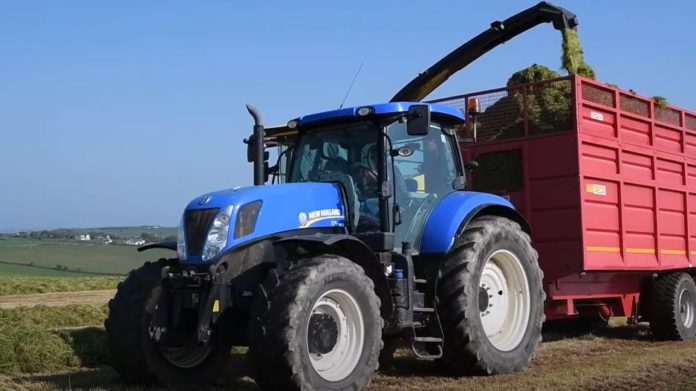Plan tasks carefully and take all the precautions to prevent deaths and injuries associated with harvesting – that is one of the key messages from Teagasc’s new joint collaborative farm safety digital media campaign with the HSA, Farm Safety Partnership and FBD Insurance.
The bodies have produced a series of short videos containing industry-leading life-saving advice covering livestock handling, farmer’s health, sheep farming, chemicals, children, slurry handling, harvesting and farm machinery.
In its harvesting safety video, the partners stressed that harvest season calls for advance planning.
They outlined that even farmers and contractors with years of experience need to be aware of the dangers associated with this activity and take the necessary precautions.
They advise that farmers and contractors should avoid rushing the job, as not taking enough time and care can result in disastrous consequences.
Everybody, including family members not directly involved, should be kept away from the harvest, particularly children, who should be supervised at all times.
Fire is a real and present danger during harvest time, they added before highlighting the importance of regularly cleaning down machines.
Tips in this video:
- “The farmyard should be a no-go area for children during harvest time.”
- “Do not ask contractors to give a child ‘a spin’ on their tractors and machines;
- Work involves harvesters, balers, large trailers and trailers – all individuals must be competent to do the work;
- All machines must be properly maintained and be appropriate to the task;
- Check brake lines, hydraulic hoses and hitching equipment regularly;
- Where hitches are loose, worn or damaged, they must be repaired or replaced;
- Lights and flashing amber beacons must be working when driving on a public road;
- Provide a safe play area as an alternative;
- Ensure fire extinguishers are present, checked and re-filled regularly;
- When carrying out repairs, plan the task – have appropriate equipment for the job and use PPE;
- Do not overload machines;
- Read the manufacturer’s manual and refer to the RSA for information on trailer weights and load height and width;
- Take time to improve visibility and point out electrical lines and other hazards as appropriate to contractors when using large machinery.
Driving
- When operating machinery, be aware of blind spots, especially around the farmyard and at road access and egress points;
- Before entering the public road, ensure that loads are properly secured;
- On the road, always drive at a safe speed;
- Take additional care on narrow roads, and a warning vehicle may need to drive ahead of wide vehicles such as combines;
Silage bales and pits:
- Take time to stack bales – hay and straw – properly;
- Operating height of a silage pit should not exceed six meters. The sides and ends must be finished at an angle of no greater than 45 degrees;
- The height of the silage being rolled should never be more than double the height of the retaining walls. Maintain sighting rails along silage walls;
- The working width for rolling silage across the top of any clamp/pit should be at least three times the full vehicle width;
- Check silage walls for intregrity in advance of silage-making;
- Never go under polythene – Fermentation of silage takes place rapidly, and oxygen depletion occurs, so asphyxiation could occur;
- Fatigue is a major contributor to accidents – If you are tired, take a rest;
- Stay hydrated, eat well and get additional help on the farm if necessary;
- Plan tasks carefully and take all precautions to prevent deaths and injuries associated with harvesting.
Previous article on farm workshop safety.





